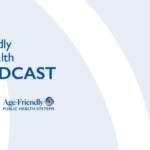Government Shutdown Puts the Public’s Health at Risk; Potential for Harm Increases as Impasse Continues
11 health advocacy and civil rights organizations call for an immediate end to the shutdown
(Washington, DC, – January 10, 2019)
As the government shutdown reaches its 20th day, leaders across a spectrum of health, public health and civil rights organizations call on Congress and the President to immediately reopen the government.
The ongoing shutdown is having a negative impact on the public’s health, both directly and by impacting other factors that influence health such as nutrition support programs at the Department of Agriculture and rental assistance programs at the Department of Housing and Urban Development. That impact will only grow and become more detrimental if the shutdown continues.
Direct health impacts of the impasse include the virtual shutdown of the Indian Health Service and suspension of many food safety inspections by the Food and Drug Administration. An ongoing shutdown threatens nutrition assistance that millions of families depend on. Furthermore, the fact that hundreds of thousands of federal employees have gone without pay since December 22, while federal contractors will likely never receive back pay for lost work time, puts their families’ food, health and housing security in jeopardy.
John Auerbach, President and CEO, Trust for America’s Health
“Every day we learn more about the many negative health impact of an extended government shutdown. A continued shutdown will create an emergency for families who rely on government assistance to pay for rent, heat, food, and medical care. It will put the health and safety of all the nation’s residents at risk as such things as safety inspections are suspended. Americans should be able to rely on their government to provide these services without fail.”
Georges C. Benjamin, MD, Executive Director, American Public Health Association
“This shutdown impacts the things that influence our health both inside and outside the doctor’s office. Access to food assistance for the most vulnerable, food and product safety for us all and income security for those federal workers and contractors who depend on federal paychecks to cover utility costs for this cold weather, shelter and urgent health care costs. These are not discretionary expenses and neither is the work they do to keep us safe.”
Hilary O. Shelton, Director, NAACP Washington Bureau and the Association’s Senior Vice President for Policy and Advocacy
“The government shutdown is affecting all Americans, regardless of where they live, their age, race, ethnicity, gender, or station in life. The longer the shutdown lasts, the more evident and serious these problems will become. Unfortunately, it is the least prosperous among us who will suffer disproportionately.”
Rachel Davis, Executive Director, Prevention Institute
“Government should be what we do together for the benefit of all. When the government shuts down, we all suffer and communities that are most vulnerable face the steepest consequences. Clean air and water, access to food and shelter, and jobs with paychecks are just a few of the conditions that support health, safety, and wellbeing that are currently without funding. We need a government that works for everyone.”
Mary A. Pittman, President and CEO, Public Health Institute
“Closures in any part of the system have cascading impacts on the public’s health: a missed paycheck may drive some people into debt or a medical emergency; expired housing contracts may force others out of their homes. Meanwhile, refugees are facing a humanitarian crisis at our southern border. We need political action that doesn’t compromise our values, or sacrifice people’s health and wellbeing.”
Stacy A. Bohlen, CEO, National Indian Heath Board
“Our ancestors signed treaties with the United States that ceded hundreds of millions of acres of land in exchange for certain benefits, such as the provision of healthcare. Today, unrelated political battles, some in Washington are abrogating those agreements and causing our people to suffer and curtailing health care and programs. When possible, Tribal governments are cutting other services and scraping together scarce dollars to keep health clinics operational, but this is not sustainable. The shutdown is destabilizing Native health delivery and health care provider access; as well as destabilizing Tribal Governments, families, children and individuals. Services will be cut, and loss of life will be the result if this shutdown is not ended soon.
Janice L. Mathis, Executive Director, National Council of Negro Women
“The government shutdown only exacerbates growing wealth and income inequality, as middle-class families are further squeezed to provide the basic necessities of food, shelter and medical care.”
Kathy Ko Chin, President and CEO, Asian & Pacific Islander American Health Forum
“It is unconscionable that our government remains shutdown over a manufactured border crisis fueled by anti-immigrant sentiment. It is time we govern by values and restore the ability of our government to provide for the health, safety and welfare of the people and reopen the government.”
Authoring organizations:
Trust for America’s Health
American Public Health Association
Asian & Pacific Islander American Health Forum
NAACP
National Black Nurses Association
National Council of Negro Women
National Indian Health Board
National Medical Association
Public Health Institute
Prevention Institute
UnidosUS
